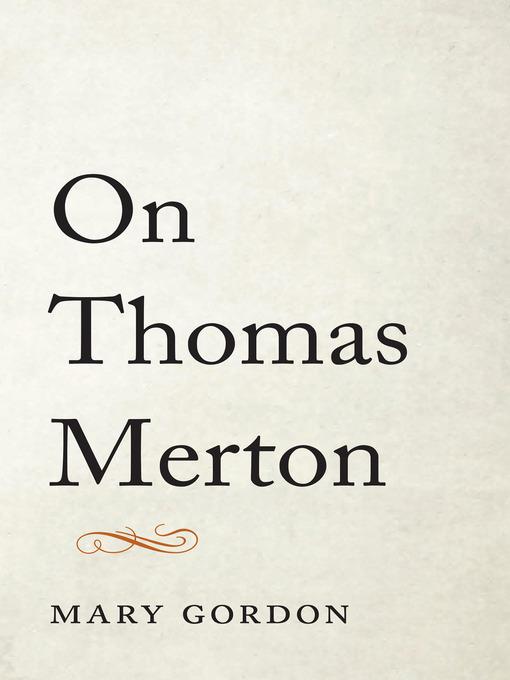
On Thomas Merton
کتاب های مرتبط
- اطلاعات
- نقد و بررسی
- دیدگاه کاربران
نقد و بررسی

Starred review from October 8, 2018
This brilliant, incisive work from biographer, novelist, and memoirist Gordon (Reading Jesus) examines the relationship—and tension—between 20th-century Christian philosopher Thomas Merton’s dual roles as writer and monk. Gordon approaches her subject through four facets of Merton’s writing life: his relationship with the church that censored him; his bestselling memoir, The Seven-Story Mountain; his novel My Argument with the Gestapo; and his private journals (which Gordon quotes from extensively). The author depicts a man often in conflict with himself and his church, a man who felt compelled to write and yet who hated being pressured to write: “I am sickened by being treated as an article for sale, as a commodity... God have mercy on me,” and later, “Today I feel hateful, and miserable, exhausted, and I would gladly die... Abbot Dom James is in absolute control of a bird that everyone wants to hear sing.” The section on his journals, where Merton expressed himself freely, is the strongest part of the book—particularly Gordon’s reaction to entries written shortly before Merton’s death in 1968. “Because this flawed mess of a man lived every day with fullness, with a heartfelt passion,” Gordon writes, “I close the journal, and I weep.” Readers will be just as affected by this intelligent, moving book.

November 15, 2018
Novelist Gordon (There Your Heart Lies, 2017) hadn't thought much about Thomas Merton (1915-68) as a writer, but when asked?because she was the only literary person [at Columbia] known to be a practicing Catholic ?to lecture about him in honor of the centenary of his birth, she accepted. Here she expands on the lecture, focusing on Merton as writer while acknowledging that he is known and read today not as either writer or Trappist monk but as a writer-monk. She discusses Merton's correspondence about writing with fellow Catholic authors Evelyn Waugh and Czeslaw Milosz; the autobiographical best-seller The Seven Storey Mountain (1948); the only novel (of four) that he saved, My Argument with the Gestapo (1969), written in 1941; and the six volumes of his journals. Gordon finds his poetry minor and his pious moments off-putting, so she goes straight to his greatest gift: his power of close observation, which perforce displays the love of language he shared with his master, James Joyce. Gordon quotes lavishly throughout, making this intense little book an ideal introduction to Merton for literary readers.(Reprinted with permission of Booklist, copyright 2018, American Library Association.)

December 1, 2018
The dual identities of Thomas Merton (1915-68) as a Trappist Monk and as an author are so deeply entwined that it's difficult to discuss them separately. Catholic author Gordon (There Your Heart Lies) explores Merton's life through his writing, from his personal letters to his published works, opening this book by claiming that if he had only been a writer or if he had only been a monk, we would never have heard of him. Gordon contends that Merton could not imagine an identity that did not include both writer and priest. This writing is both private reflection and also a semifictional reconstruction that argues Merton's role as priest compromised his writing. Later, the author highlights his use of descriptive language along with his exploration of identity as a monk assigned to write on certain topics, though his work was heavily censored by church authorities. Gordon identifies seven volumes of Merton's journals as his best work and claims that journal writing is self-contradictory, like Merton himself. VERDICT Merton devotees and those wishing to learn more about him will appreciate this detailed look at his accomplishments and struggles.--Judy Solberg, Sacramento, CA
Copyright 2018 Library Journal, LLC Used with permission.

























دیدگاه کاربران